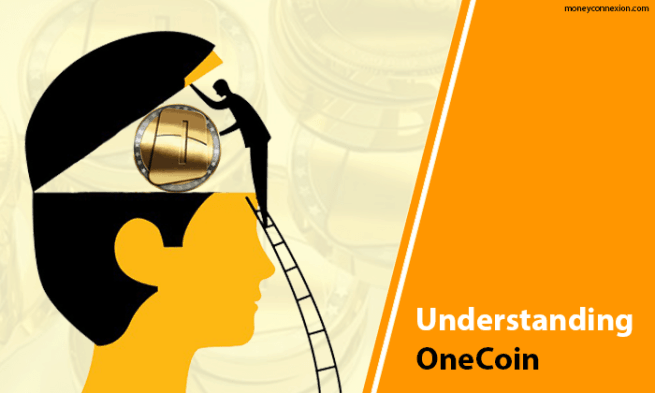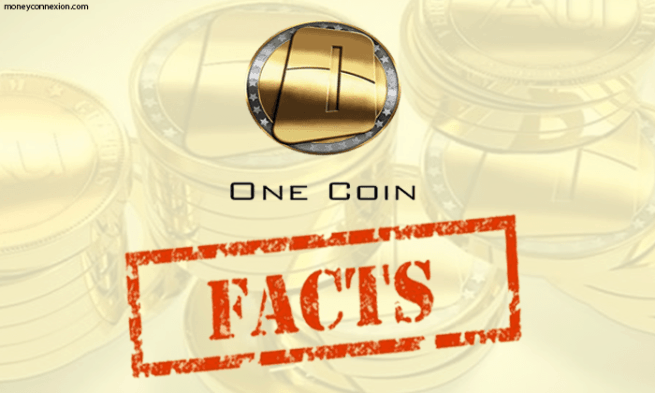
Thousands of investors worldwide aver, crypto-currencies are future of the global economy. Several acclaimed millionaires are speaking in favor of crypto-currencies. Others however believe that crypto-currencies are a bubble that will grow disproportionately and burst anytime.
Regardless of whichever school of thought you subscribe, every crypto-currency in the world is rife with issues.
These issues are emerging since crypto-currency trade offers a very high level of privacy and is shrouded in secrecy. Unfortunately, this advantage that could be utilized by genuine investors now stands exploited by scammers.
Consequently, we have rogue governments to cyber-criminals now banking on crypto-currencies. To further worsen this situation, bogus or fake crypto-currencies are also emerging in the financial market.
Thousands of investors invariably fall prey to these scams and patronize fake crypto-currencies.
One such a crypto-currency in question is One Coin, which operated from Bulgaria. Before we proceed further, we categorically state that OneCoin has left a trail of unanswered questions and thousands of investors poorer.
Understanding OneCoin

There are numerous claims over what is OneCoin. Here we present the facts about One Coin.
“OneCoin is a digital currency, based on cryptography and created through a process called ‘mining’. Just like the serial number on a paper bill, each digital coin is unique. Unlike money issued by governments, there is a finite number of One Coins, ensuring they cannot be affected by inflation and are impossible to counterfeit.
Because crypto-currencies are not tied to any particular country or central bank, the value of the coin depends on factors such as usability, demand and supply,” states the OneCoin website
Interestingly, OneCoin promoters also claim they are a business rather than a crypto-currency. It describes One Coin as vendor for educational material for learning crypto-currency trade. Members are encouraged to buy educational packages from OneCoin, at prices ranging between Euro 100 and Euro 120,000.
In exchange, they are provided ‘tokens’ that help them ‘mine’ OneCoin and- surprisingly- other crypto-currencies, over their respective and independent blockchain.
How OneCoin Works
OneCoin deploys the Multilevel Marketing (MLM) model to promote its ‘educational products’. This means, you buy an educational package from One Coin and receive tokens to mine the crypto-currency.
However, to earn more ‘tokens’, you need to enlist people from your social network into the OneCoin chain. These new members, in turn, will recruit others. As the baseline increases, so does the number of ‘tokens’ you earn.
However, financial regulatory authorities and law enforcement agencies in various countries have termed One Coin as a Ponzi or pyramid scheme. This dubious distinction is reserved for companies and offerings that offer no guarantee of payment to investors.
Instead, it works on the simple principle of upward movement of funds. As you enroll members, part of the money they pay gets credited to your account. Once this enrollment ceases, so do your earnings. In most cases, you risk losing the investment.
OneCoin Facts

OneCoin was launched by a woman named Dr. Ruja Ignatova, who claims to be an Oxford business school graduate. Independent confirmation attempted by some crypto-currency experts into her academic achievements seem to suggest otherwise. Offices of OneCoin are based in Sofia, Bulgaria, states the website.
- At its peak in 2016, OneCoin traded for as high as Euro 120 per unit.
- In stark contrast, it has also traded at a low of Euro 1.05 per One Coin.
- Unlike other crypto-currencies, OneCoin cannot be traded at external exchanges: you need to use the exchange provided by its promoters only.
- Currently, there are no takers for OneCoin: Its operations are seized by Bulgarian police.
- OneCoin claims to be the world’s single largest crypto-currency and its blockchain is geared to issue a total of 120 billion units. In comparison, the world’s most popular crypto-currency Bitcoin, will have a humble 21 million units, after attaining its peak.
- Since 2016, One Coin has been at center of controversy in many countries.
- In January 2017, OneCoin’s offices in Sofia were raided by a team of police from at least three European countries- Bulgaria, Germany and Italy. Cops interviewed over 50 persons involved in OneCoin and sealed its operations
OneCoin Trail
The January 2018 raid on OneCoin and its eventual closure marked the culmination of a series of investigations around the world.
Reports cite a police complaint filed by a major German bank and charges leveled against Dr. Ruja Ignatova for her arrest. At least two banks from Germany, Deutsche Bank and another smaller bank fell unsuspecting victims to the OneCoin scam, though these reputed establishments ceased dealing with the crypto-currency and its promoter as soon as reports of scams surfaced.
Interestingly, Dr. Ruja Ignatova has featured on cover of Forbes and various other very respected finance and business magazines in the world.
A biography of Dr. Ruja Ignativa states, she was born and raised Born in Sofia until her age of 10. Her family later migrated to Germany. She completed her studies in Germany and is sauid to hold a Doctorate in Law from the University of Konstanz. Additionally, she is said to hold a Master degree in law from Oxford and Konstanz universities. Further, she holds a Economics degree from University of Hagen.
Before One Coin, she worked as Associate Partner at McKinsey & Company. Here, she led one of the largest asset management funds ever launched in Bulgaria, the CSIF and over Euro 250 million. Unconfirmed reports claim, Dr. Ignatova was named “Businesswoman of the Year” in Bulgaria in 2014 and “International Businesswoman of the Year” in 2012.
Fate of Dr. Ruja Ignatova
Several arrest warrants for Dr. Ruja Ignatova have been issued by police in some countries that are also seeking her extradition on charges of large scale financial fraud. Some of her associates from OneCoin are also facing the same fate. Many are suspected to be hiding in countries that do not have extradition treaties with Europe.
However, it is quite unlikely she would be extradited to stand trial in any country outside Europe. This is because European Union enforces very stringent rules for extraditing citizens and refugees living in member states.
Wrap Up
The facts we present prove beyond doubt that One Coin was a scam. It is perhaps the largest scam to have struck the crypto-currencies world. There have been innumerable crimes and scams related with crypto-currencies.
Yet, none of these led to closure of the crypto-currency. OneCoin has the dubious distinction of being a crypto-currency, solely launched with the purpose of perpetrating a worldwide financial fraud.
Remember, nobody can buy or sell OneCoin, after Bulgarian police aided by European Police (Europol) seized its offices and assets. However, there are innumerable scammers who are trying to palm off their OneCoin holdings to unsuspecting people.
They approach people and show impressive credentials to lure them into the Ponzi scheme. Since OneCoin has collapsed, there are no ways and means that this Ponzi scheme will fetch you any returns.
In Conclusion
The rise and fall of One Coin has proved one major point: crypto-currency trade is open to scams and crimes of all sorts. There are instances where crypto-currencies were used in cybercrimes. Additionally, they are gaining notoriety for providing a method of diverting money for tax evasion.
OneCoin has also made financial authorities and law enforcers across the world to take a closer look at crypto-currencies and find ways and means by which traders can be traced, if required. Though several billionaires have billed crypto-currencies as futuristic, nobody can predict how long this bubble can sustain.
Hi! I am a robot. I just upvoted you! I found similar content that readers might be interested in:
https://www.quora.com/What-is-OneCoin-and-is-it-legitimate